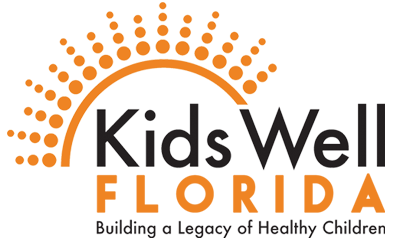September 2, 2015
There have been numerous stories in traditional and social media about the changes coming to Florida Healthy Kids full-pay option. The premium rates are increasing between 47 and 95 percent. That’s a big financial impact on 36,000 working families in Florida.
It is important to recognize what aspects of the Affordable Care Act and the Healthy Kids program compelled Florida Healthy Kids to make the change in the full-pay plan options.
Before health reform, we had a hodge-podge of insurance plans that provided extremely limited benefits, like excluding mental health care, pregnancy coverage, or therapies for healthy childhood development, and many plans limited how much the plan would pay for health care services.
The Affordable Care Act guaranteed that people would not be denied insurance due to pre-existing health conditions and created a definition of Minimum Essential Coverage (MEC) to ensure that consumers received a comprehensive set of benefits, including free preventive care. In order to make these improvements in private insurance, most people are required to purchase insurance coverage or they will make a shared responsibility payment (penalty) with their annual tax return. Participation in a government-funded or subsidized health program like Medicaid or the Children’s Health Insurance Program (Florida Healthy Kids) automatically qualifies as MEC. For people who purchase private insurance, including those who enroll in the Healthy Kids full-pay option, MEC must include consumer protections like no dollar annual or lifetime maximum amount of coverage and inclusion of all 10 essential health benefits.
The Florida Healthy Kids full-pay plan was deemed retroactive back to January 2015 to be in substantial compliance with the MEC by the federal government, avoiding potential tax penalties for participating families. However, the full pay plan would need to be in full compliance by January 2016. There are a few limitations of the old full-pay plan that fall short of MEC requirements. It is missing enhanced habilitative coverage that includes therapies and services that help children with developmental needs like autism, and it does not provide for new eyeglasses annually. Under the current plan, a child with cancer or in need of a transplant could easily max out their annual or lifetime benefits, leaving their family with tens of thousands of dollars of medical debt.
Florida Healthy Kids asked their existing insurance carriers and the new carriers to offer plans that meet the MEC for the Healthy Kids full-pay families. By meeting MEC standards, the full-pay plan becomes a new group that is priced on its own. The cost of children covered by this group is higher than the children who qualify for government subsidized coverage (which has also been reported in other states’ full–pay programs) and the higher costs can no longer be spread over the larger Healthy Kids population. Unfortunately, the higher level of coverage, and past utilization of health care by this group, resulted in higher premiums for families.
We commend the Florida Healthy Kids Corporation for their cooperation with the Center for Consumer Information and Insurance Oversight (CCIIO) in facilitating the policy determination that children enrolled in the full-pay Healthy Kids program will be eligible for a Special Enrollment Period to obtain health insurance on the HealthCare.gov marketplace. This is one step toward providing opportunities for seamless high quality and affordable health care coverage.
Some children will have other options for high quality MEC insurance coverage. Parents who work for employers who offer health insurance can check with their employers about the cost of adding children to their policies. KidsWell Florida is offering to work with Florida Healthy Kids in reaching out to employers to explain how the Healthy Kids changes can be a qualifying event for mid-year enrollment in their group health plans.
Families who do not have access to affordable employer-sponsored coverage may be eligible for Premium Tax Credits when they buy insurance on HealthCare.gov. The marketplace is offering a special enrollment period to children affected by the Healthy Kids policy change, which means they do not have to wait until November 1 when the annual open enrollment period begins. Click this link for the latest information about the Special Enrollment Period.
If a family discovers they do not have any offer of health insurance coverage that is affordable, they should still sign up on HealthCare.gov to apply for an exemption from paying the penalty for not having health insurance. For families that are unable to enroll in affordable health insurance and would like to share their story, please contact Community Health Organizer, Aldiana Brezanin at [email protected] so we may help to track the impact from these policies.
Sincerely,
KidsWell Florida







September 2, 2015
Blog